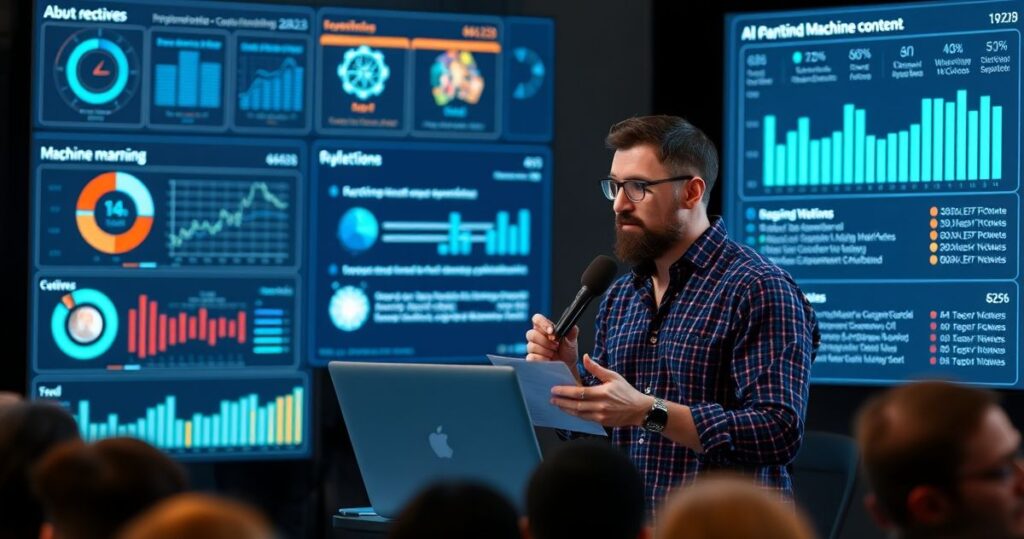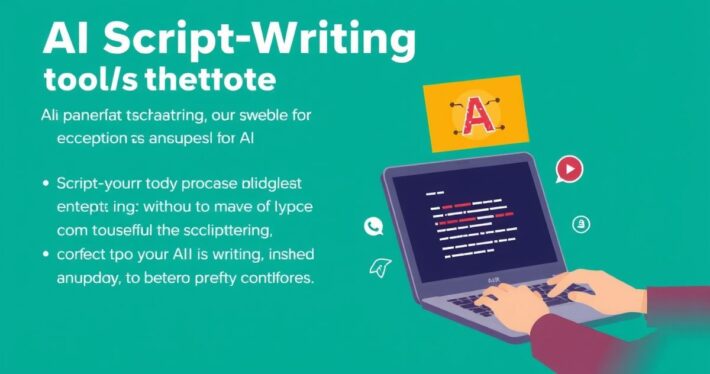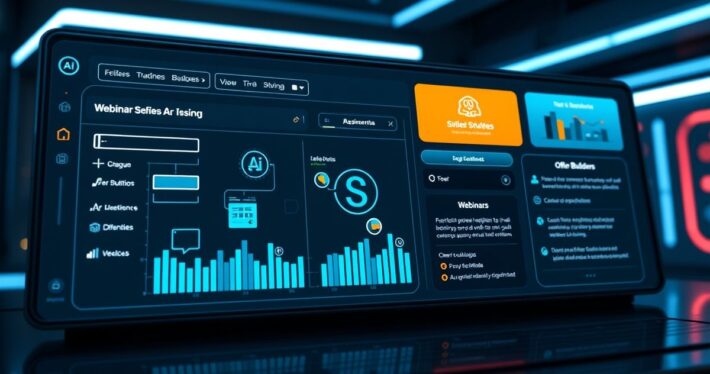The role of machine learning in crafting engaging webinar scripts.

The Role of Machine Learning in Crafting Engaging Webinar Scripts
Webinars have become a cornerstone of modern digital marketing, but crafting an engaging script can be a daunting task. Enter machine learning (ML): a game-changing technology that’s transforming the way we create webinar content. By analyzing vast amounts of data, identifying patterns, and predicting audience behavior, ML tools are helping marketers develop scripts that not only captivate but also convert. In this article, we’ll explore how machine learning is revolutionizing webinar script creation and why it’s a must-have tool for any marketer looking to maximize their impact.
Why Webinar Scripts Matter More Than Ever
Let’s face it: a poorly scripted webinar can feel like a monotonous lecture, leaving your audience disengaged and unimpressed. On the other hand, a well-crafted script can drive conversions, build trust, and establish you as an authority in your niche. But creating such a script requires more than just industry expertise—it demands an understanding of your audience’s pain points, preferences, and behaviors.
This is where machine learning shines. By analyzing data from past webinars, audience interactions, and even competitor content, ML tools can identify what works and what doesn’t. The result? A script that’s not only engaging but also tailored to your audience’s needs.
How Machine Learning Enhances Webinar Script Creation
1. Audience Insights at Your Fingertips
Machine learning algorithms excel at analyzing large datasets, including audience demographics, engagement metrics, and behavioral patterns. This data can reveal key insights, such as which topics resonate most, what tone of voice works best, and even the ideal length for your webinar.
For example, an ML tool might discover that your audience prefers shorter, action-packed webinars over lengthy, detailed ones. Armed with this knowledge, you can craft a script that keeps viewers hooked from start to finish.
2. Dynamic Storytelling
A great webinar script tells a story, and machine learning can help you structure it effectively. By analyzing successful webinars across industries, ML tools can suggest narrative frameworks that drive engagement.
Let’s say you’re hosting a webinar on email marketing. An ML-powered tool might recommend starting with a relatable anecdote, transitioning into actionable tips, and ending with a compelling call-to-action. This structured approach ensures your content flows seamlessly, keeping your audience engaged throughout.
3. Personalization at Scale
One of the biggest challenges in webinar marketing is personalization. How do you create content that speaks to each attendee individually, especially when your audience is diverse?
Machine learning can help by segmenting your audience based on factors like industry, job role, or past behavior. This allows you to tailor your script to specific segments, ensuring your message resonates with everyone. For instance, if your webinar is about project management, the script might include examples relevant to both small business owners and enterprise-level managers.
Real-World Example: How ML Transformed a B2B Webinar
Let’s look at a real-world example. A B2B SaaS company was struggling to convert attendees during their product demo webinars. Despite having a great product, their scripts felt generic and uninspired.
Enter an ML-powered webinar script generator. The tool analyzed past webinars, attendee feedback, and competitor content to identify key pain points. It then suggested specific language changes, such as replacing technical jargon with relatable analogies and adding success stories from similar businesses.
The result? A 40% increase in attendee engagement and a 25% boost in conversions.
Overcoming Challenges with Machine Learning
While machine learning offers incredible benefits, it’s not without its challenges. For one, ML tools rely on quality data to generate accurate insights. If your dataset is limited or biased, the results may not be as effective.
Additionally, it’s important to strike a balance between automation and human creativity. While ML can suggest structure and language, your unique voice and expertise are what truly make your webinar stand out. Think of ML as a collaborator, not a replacement for your creativity.
How to Get Started with ML-Powered Webinar Scripting
Ready to harness the power of machine learning for your next webinar? Here’s a step-by-step guide:
- Choose the Right Tool: Look for an ML-powered webinar script generator that integrates with your existing workflow.
- Input Your Data: Provide the tool with relevant data, such as past webinar recordings, audience feedback, and competitor content.
- Refine the Output: Use the tool’s suggestions as a starting point, but don’t be afraid to add your personal touch.
- Test and Iterate: Run A/B tests with different script variations to see what resonates most with your audience.
The Future of Webinar Scripting: What’s Next?
As machine learning technology continues to evolve, so too will its applications in webinar scripting. Imagine a tool that can predict audience questions in real-time, allowing you to address them proactively. Or an AI that generates fully customized scripts based on each attendee’s preferences.
The possibilities are endless, and the only limit is your imagination.
Final Thoughts
Machine learning is no longer a futuristic concept—it’s a practical tool that’s transforming the way we create webinar content. By leveraging ML-powered tools, you can craft scripts that are engaging, personalized, and optimized for conversions. So why stick to outdated methods when you can embrace the future of webinar marketing?
Now, here’s a question to ponder: How could machine learning elevate your next webinar script, and what results do you hope to achieve?



